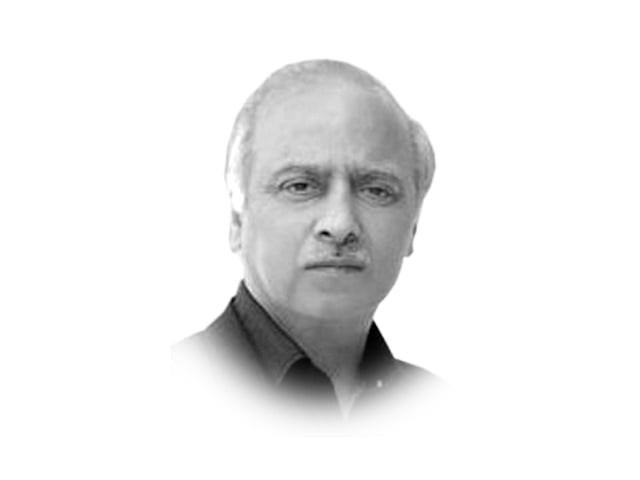VIPs and rule of law
Pakistan’s dilemma is selective rule of law instead of justice and security to all citizens.

Thanks to Imran Khan’s reformist agenda (without agreeing to his rhetoric and the methodology) never before has the public discourse revolved so much around the rule of law and fundamental rights. His month-long sit-in has essentially turned the focus on the urgent need for reforming the political economy. The public tolerance boils over the threshold (PIA flight 370 being a case in point) makes perfect sense in the given situation. Issues such as the elites’ indifference to peoples’ fundamental rights or their insensitivity to the inconvenience they cause to the public do constitute elements of a civil war if Pakistan were to face one.
In this context, Singapore’s Foreign Minister, Kasiviswanathan Shanmugam, wrote in the Singapore Journal of legal Studies in 2012: “What defined Singapore, what made us a nation, were shared ideals and shared aspirations. Equal opportunity for all, regardless of economic background or social status, race, language, or religion. Meritocracy. Equality before the law. Intolerance of corruption. A commitment to free trade and the market system. Above all, a determination to develop Singapore, give a better life to Singaporeans to survive and succeed against the odds.” Seen in this context, Singapore stands out as a model of the rule of law, which has made it one of the safest places in the world to live and work. Its government over the years has ensured that corruption is dealt with severely and crime does not go unpunished.
While females dread to step out of their homes in most of Pakistan — regardless of whether in Karachi, Lahore, Khyber-Pakhtunkhwa or Fata, young boys and girls in Singapore roam freely in the streets at any time of the day or night, alone or in groups, without fear of being teased, abused or vandalised.
People don’t feel the need to to lock their homes or cars as the fear of law is all-pervasive. In fact, the sense of security is so pervasive that the government itself has to remind the citizens by putting up posters of “Low crime does not mean no crime”.
During a recent visit to Singapore, a friend, who resides there narrated a tale of a taxi driver. He was on a night shift when he picked up a young woman in her early twenties who was wearing a two-piece bikini and was barefoot on the side of the road at three in the morning. She had gone for a beach party about five kilometres from where the cabbie picked her. During the party, she went for a swim but found everything missing — slippers, towels, bag, phone and money — upon her return. She couldn’t figure out whether it was a prank or an actual theft. She, nevertheless, decided to walk from the beach to the main road where she could get a cab at that time of the night to go back home. Not once was she afraid for her personal safety and no one teased her throughout either. The cabbie took her home safely and was paid the fare by the girl’s father who had been alerted of her sorry state over a phone call by the cabbie during the ride.
Singapore, undoubtedly, owes this to Lee Kuan Yew, the father of new Singapore. During his visit to Pakistan in the early 1990s, he spoke to a selected gathering at the Planning Commission in the presence of Nawaz Sharif who was the premier at the time.
“Your PM has asked me to help Pakistan but I told him the job may be difficult because you believe in the other world. We believe in this world and thus work hard for it.” Yew said this in a rather candid manner underlining the energy and effort his team puts in propelling Singapore to new heights of development. The key — a rule that doesn’t discriminate against anyone and respect for the law. Pakistan’s dilemma is precisely the opposite, selective rule of law instead of justice and security to all citizens.
Published in The Express Tribune, September 24th, 2014.
Like Opinion & Editorial on Facebook, follow @ETOpEd on Twitter to receive all updates on all our daily pieces.














COMMENTS
Comments are moderated and generally will be posted if they are on-topic and not abusive.
For more information, please see our Comments FAQ